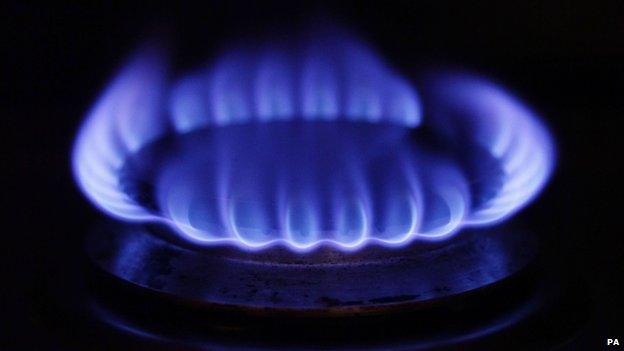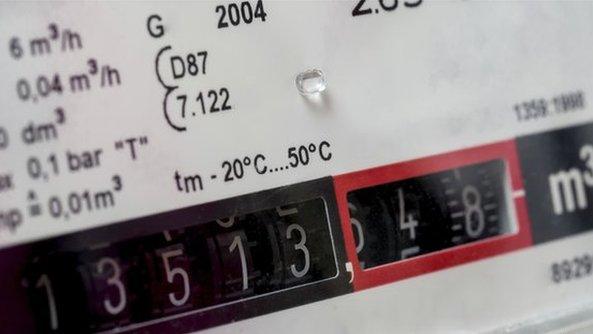Pre-payment energy meters - Q&A
- Published

More than half a million pre-payment energy meters have been forcibly installed in the UK over the last six years, figures obtained by BBC Radio 5 live show. What do the meters involve and why are some people required to have them?

What are pre-payment meters?
The basic principle of the meters is that you pay for electricity and gas before you use it, rather than after.
Most households in the UK have an account with an energy company and pay their bill at regular intervals, based on usage. With pre-payment meters, a sum of money is loaded on to a card or key and can then be used on a pay-as-you-go basis. When the card runs out, a customer will have to top up or face being unable to use gas or electricity.
It's similar to the pay-as-you-go arrangement for mobile phones.

Why do people have them?
Some people will have pre-payment meters because it helps them budget, topping up when they have money rather than being faced with a bill every month or quarter. Others have them forcibly installed - for example when an energy supplier has obtained a court order because a customer has run up debt through non-payment of bills.

Why are they imposed on some customers?
Energy UK, the trade body which represents energy suppliers, says the meters are only forcibly installed as a last resort. The energy regulator Ofgem does not define exactly what "last resort" means but says companies must communicate with customers to try to arrange payment before a pre-payment meter is imposed.
In most cases energy companies apply to the courts for a pre-payment meter to be installed. It is possible that a landlord could make a similar application. In some rare cases, the meters could be installed for health or safety reasons.

Are they more expensive?
The standard rates for the meters are broadly similar to those for billed customers, Energy UK says, though some comparison sites suggest the cheapest deals on offer online are for credit-based meters. Savings are often possible through direct debit schemes.
Citizens Advice says it has concerns over price difference, with pre-payment on average £80 more expensive per year than direct debit and up to £200 more than online-managed accounts. It says unit prices are higher and there are limited tariffs on offer, meaning less choice and competition.
There are administrative costs faced by pre-payment meter customers, including installation and maintenance. These vary by company, with Energy UK saying they are "significant but not sizeable".
Those customers forced into using the meters are likely to have debts and a debt repayment scheme may be part of the charges they face.
Pre-payment meter customers can still shop around for better deals, but only if their debts are under a certain amount. According to Citizens Advice, external, customers can switch if they owe £500 or less for each of gas and electricity.

What do the energy firms say?
Energy UK says the meters help people who have not kept up with payments stay connected. Rather than being cut off from gas and electricity, they are given an alternative, which will often be easier to manage.

What do consumer groups say?
Citizens Advice says pre-payment customers have been "getting a raw deal for too long". The body says customers using the meters face limited tariffs and higher costs. It also says many face difficulty actually topping up, with some companies not giving customers the opportunity of doing so online or over the phone.
- Published26 May 2015
